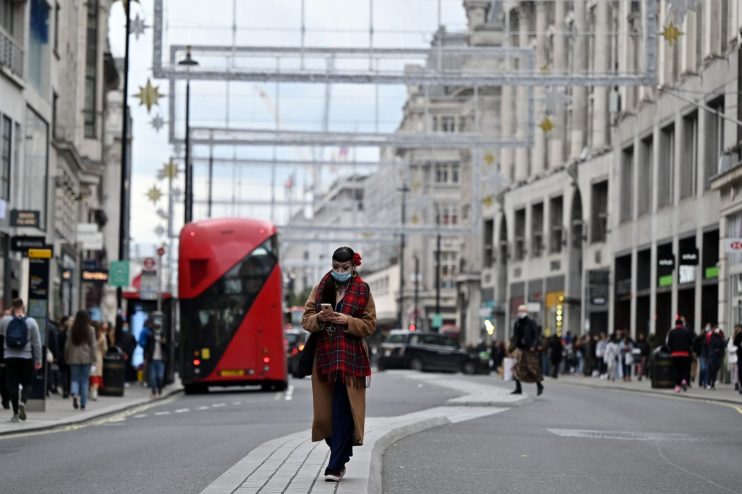Coronavirus vaccine could pump £41bn into London’s economy

The effective rollout of a coronavirus vaccine would likely inject £41bn into London’s economy and save tens of thousands of jobs, according to new research.
Under a “best case scenario”, a vaccine rollout would see office workers return to their desks for four days a week, generating an extra £41bn for the economy, according to a study published today by consultant Arup.
That would likely save around 57,000 jobs in hospitality, retail and entertainment and revitalise the “ghost town” of central London.
Even if employees only return to their offices in the capital three days a week, London’s economy will receive a boost of £22bn and see 31,000 jobs saved, the study found.
Meanwhile a “base case” projection would mean a slightly more muted recovery with office occupancy climbing from around 30 per cent now to 65 per cent by the end of next year.
London footfall picked up last month after historic lows during the first lockdown, but still remains dramatically beneath the usual autumn average.
Businesses in the capital earlier this month warned Prime Minister Boris Johnson that London’s economy is on the brink of a “mass extinction event” in the wake of England’s second nationwide lockdown.
Hopes for a return to normality next year were given a welcome boost yesterday after US biotech firm Moderna announced its coronavirus vaccine proved 95 per cent effective in late-stage trials.
The news followed hot on the heels of Pfizer’s announcement last week that its experimental Covid vaccine proved similarly effective.
But Arup’s study cautioned that a worst case “doom and gloom” scenario with no vaccine and fresh lockdowns across the capital would decimate London footfall and see office occupancy fall back to lows of around 15 per cent that of last spring.
Ruth Duston, the London business leader who commissioned the study, said: “The realistic prospect of a vaccine will fill many in the business community with great hope. It’s clear from these projections that any measures which mean people can return to their offices come with enormous economic benefits.
“But even with office workers at their desks three days a week by next year, we must remember that occupancy rates will still be significantly lower than they were pre-Covid-19.”